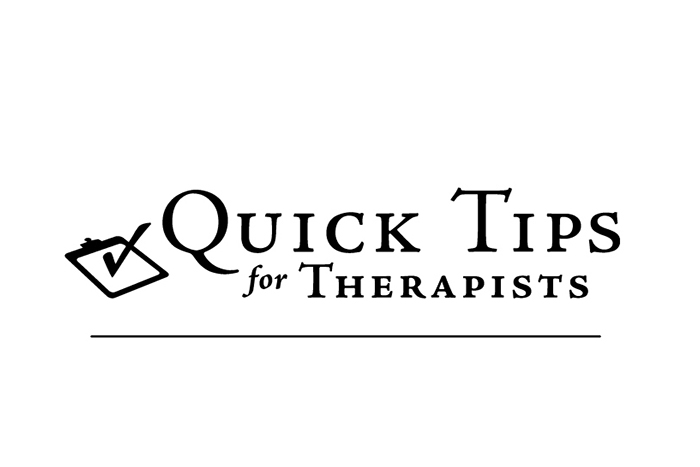By Russ Harris
From time to time, we all have clients who behave “problematically” during the session—for example, they may endlessly vent about their problems without letting the therapist get a word in, or continually blame all the people in their life without ever looking at their own role in their ongoing issues, or rehash the same stories week after week without any obvious purpose. And let’s be honest; haven’t we all at times simply gritted our teeth and tried to put up with this, and “get through the session,” rather than openly addressing this behavior with the client?
Usually we do this because we get hooked by feelings of anxiety and thoughts like, “It would be rude of me to interrupt,” or “She’ll get upset with me,” or “Maybe he just needs to do this.”
In these situations, it’s often helpful for us to be truly authentic with our clients and use self-disclosure to raise the issue. We could say something like, “I’m noticing something happening here, and I’d really like to bring it to your attention. My mind’s telling me you’re going to be upset or offended by what I say, and I’m noticing a lot of anxiety in my body, and a strong urge just to sit here and not say anything about it. However, I’m committed to helping you create the best life you can possibly have. So, if I sit here and say nothing about this, then I don’t think I’m doing my job properly; I don’t think I’m being true to you, as a therapist. So, I’m going to do what matters here, even though my heart is racing—I’m going to tell you what I’m noticing.”
Notice how, in doing this, we are explicitly modeling mindfulness, self-acceptance, authenticity, courage, and commitment. And by now, we’ll have our client’s full attention!
Then, with an attitude of openness and curiosity, unhooking ourselves from any judgments or criticisms, we can compassionately and nonjudgmentally describe the behavior we’re noticing and point to the fact that it’s preventing useful work in the session. From there, we may explore the purpose of this behavior. If relevant, we can explore whether it plays out in other relationships outside of therapy—and, if so, what are the consequences? We may also inquire about the client’s thoughts and feelings in response to our observation—and do some work around acceptance, mindfulness, and self-compassion if necessary.
Here’s a shorter version: “I’m wanting to talk about something that I think is going on, and my mind’s telling me that I’m going to come across as rude or insensitive … however, I don’t want to let my mind talk me out of it because I think it’s really important … so, is it okay with you if I share what I think may be happening here?”
For most of us, it’s nerve-racking to have these conversations with clients; however, almost always, it paves the way for important, authentic, courageous therapeutic interactions.
Book Titles: ACT Made Simple, Second Edition
 Russ Harris is an internationally acclaimed acceptance and commitment therapy (ACT) trainer and author of the best-selling ACT-based self-help book The Happiness Trap, which has sold over 600,000 copies and been published in thirty languages. He is widely renowned for his ability to teach ACT in a way that is simple, clear, and fun—yet extremely practical.
Russ Harris is an internationally acclaimed acceptance and commitment therapy (ACT) trainer and author of the best-selling ACT-based self-help book The Happiness Trap, which has sold over 600,000 copies and been published in thirty languages. He is widely renowned for his ability to teach ACT in a way that is simple, clear, and fun—yet extremely practical.


 2024 Peace Playbook: 3 Tactics to Avoid Clashes with Your Partner
2024 Peace Playbook: 3 Tactics to Avoid Clashes with Your Partner